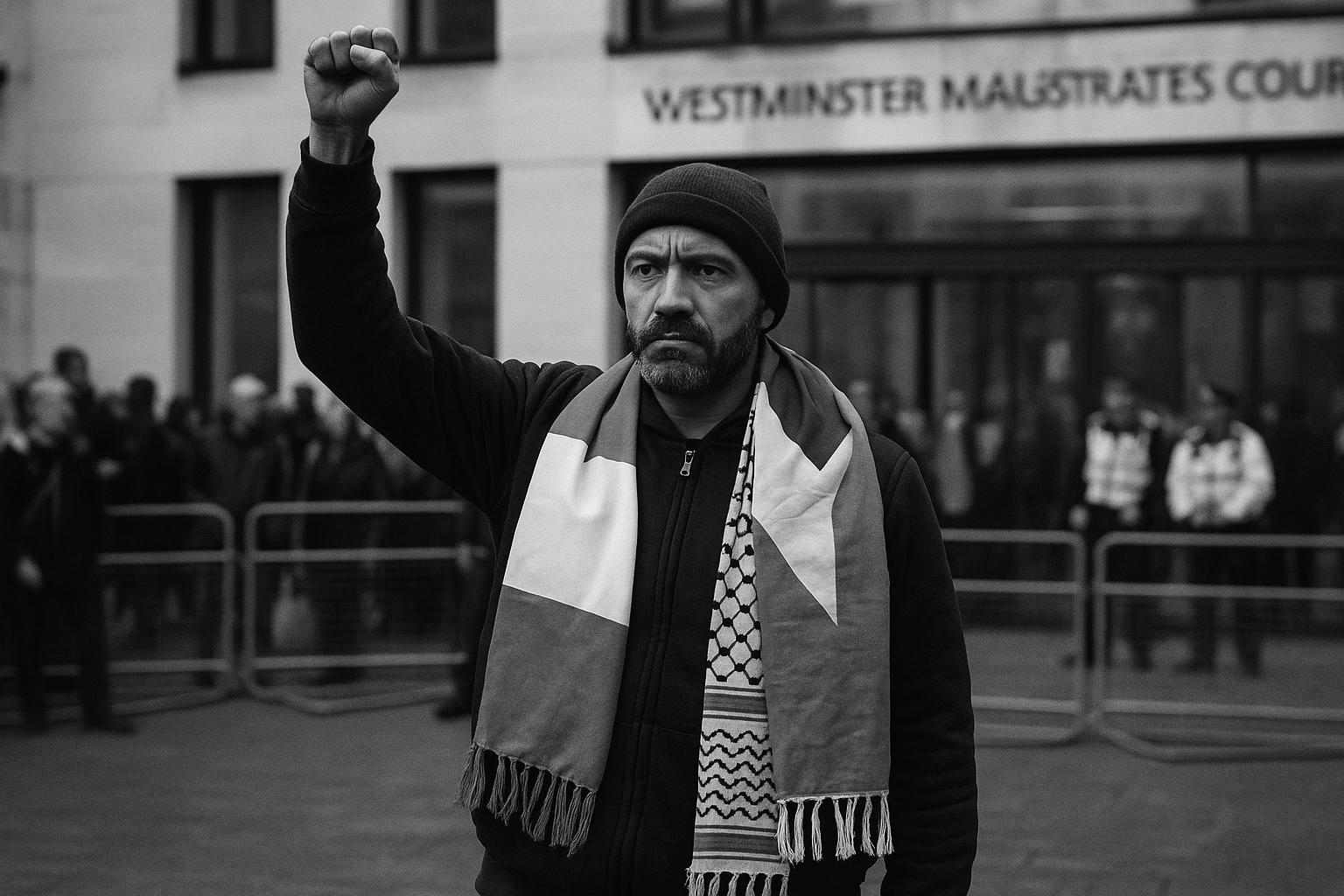Liam Óg Ó hAnnaidh — the Belfast‑born rapper who performs as Mo Chara in the Irish hip‑hop trio Kneecap — has been charged in relation to an incident at the O2 Forum in Kentish Town on 21 November 2024 that prosecutors say involved the public display of a Hezbollah flag. According to reporting, the matter was brought to the attention of the Metropolitan Police’s counter‑terrorism command in April 2025 and Ó hAnnaidh was due to appear at Westminster Magistrates’ Court on 18 June 2025. The band says it will contest the charge.
The charge stems from video footage that surfaced online; the Met has said it investigated that material after being alerted on 22 April 2025. Prosecutors frame the allegation as one of public support for a proscribed organisation — a legal category that in the United Kingdom includes both Hezbollah and Hamas — rather than a prosecution for holding particular political views, the reporting states.
At his first appearance, Ó hAnnaidh was granted unconditional bail, according to coverage of the court hearing, while other reports noted he had not yet entered a formal plea at that stage. Prosecutors emphasised to the court that the charge concerns alleged support for a proscribed organisation. The defence has signalled legal arguments that include questioning the admissibility of timing and procedural issues around the circulating footage. A fuller hearing has been scheduled for later in the year.
The proceedings have prompted large, vocal gatherings of supporters. Hundreds of people — many waving Irish and Palestinian flags, wearing “Free Mo Chara” T‑shirts and carrying banners and ad vans bearing the band’s slogans — gathered outside Westminster Magistrates’ Court, chanting and drumming. The Metropolitan Police imposed conditions on where demonstrations could take place, saying policing plans were in place for related events to ensure public safety and to prevent disruption. Organisers of subsequent gigs have said they monitored events closely.
Kneecap have characterised the investigation and charge as political. “Political policing,” the band said in a public response that was reported in national outlets, arguing the action was intended to silence criticism of Israel’s conduct in Gaza; other coverage recorded the band and supporters calling the prosecution a “witch hunt”. The group has staged surprise shows and public stunts, and vowed to defend the case in court. Editorially, those claims are the band’s account of events.
Beyond the courtroom, the episode has fed into a broader debate in music and festivals about artistic freedom and public safety. The band’s pro‑Palestine messaging at recent international appearances prompted calls from some politicians and commentators for organisers to remove them from line‑ups; at the same time, more than a hundred musicians publicly urged festivals to retain Kneecap on principle. Despite controversy and calls for a ban from some quarters, the trio have continued to secure festival slots.
The dispute highlights competing imperatives for police and event organisers: balancing the enforcement of terrorism‑related laws with the need to safeguard free expression and the smooth running of live events. The Met has said its actions are about public safety and enforcing the law; the band and its supporters say the policing decisions are politically motivated. Both positions have shaped how promoters, venues and festivals have reacted to forthcoming shows.
Legally, the case will turn on the interpretation of footage and whether the elements of an offence under the Terrorism Act can be proven in court. Observers note the prosecution relies heavily on the circulating video evidence and on whether that display can be shown to have been intended to express support for a proscribed organisation. The defence’s procedural arguments over time limits and evidence will be a key part of the next stages of the proceedings. The band has said it will continue to contest the charge vigorously.
The episode is likely to remain a flashpoint in discussions about the limits of protest, the responsibilities of performers, and how cultural institutions navigate politically charged expression. For now, the legal process will determine whether the public controversy becomes a criminal conviction or a contested, and potentially precedent‑setting, court judgment.
📌 Reference Map:
##Reference Map:
- Paragraph 1 – [1], [3], [4]
- Paragraph 2 – [4], [3], [6]
- Paragraph 3 – [6], [1]
- Paragraph 4 – [1], [3], [7], [6]
- Paragraph 5 – [4], [2], [7]
- Paragraph 6 – [5]
- Paragraph 7 – [3], [2], [5]
- Paragraph 8 – [6], [4]
- Paragraph 9 – [5], [4]
Source: Noah Wire Services
